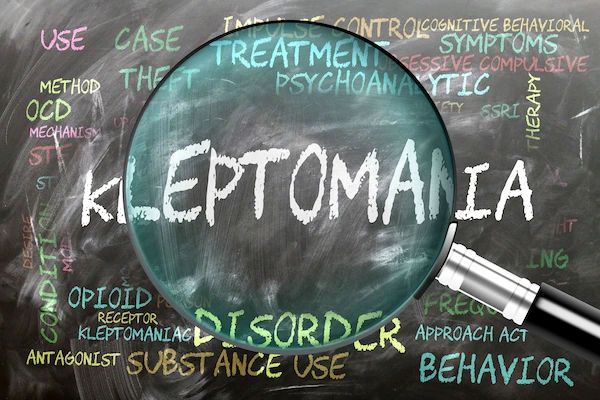Understanding Mental Health Basics
Understand the basics of mental health, including common conditions, early signs, and the importance of mental well-being. Learn when to seek help and support a healthy mind.

Written by Dr. Rohinipriyanka Pondugula
Reviewed by Dr. Vasanthasree Nair MBBS
Last updated on 21st Aug, 2025

Introduction
Mental health is just as important as physical health, yet it often doesn’t get the same attention. Many people hesitate to talk about it because of stigma or misunderstanding. But the truth is, mental health affects how we think, feel, and act in our daily lives. Taking care of it is essential for overall well-being.
This article will help you understand the basics of mental health, common concerns, and simple ways to maintain good mental well-being.
What Is Mental Health?
Mental health refers to our emotional, psychological, and social well-being. It influences how we:
Handle stress
Make decisions
Relate to others
Cope with challenges
Good mental health doesn’t mean being happy all the time; it means being able to manage emotions, stay resilient during tough times, and maintain healthy relationships.
Consult a Top Psychiatrist for the best advice
Common Mental Health Concerns
Just like physical illnesses, mental health conditions can affect anyone. Some common ones include:
1. Anxiety Disorders
Excessive worry or fear
Panic attacks
Social anxiety
2. Depression
Persistent sadness
Loss of interest in activities
Fatigue and low energy
3. Stress-Related Issues
Difficulty relaxing
Irritability
Sleep problems
4. Bipolar Disorder
Extreme mood swings (high energy to deep sadness)
5. Post-Traumatic Stress Disorder (PTSD)
Flashbacks from past trauma
Nightmares or severe anxiety
These conditions are treatable, and seeking help early can make a big difference.
Signs That You or a Loved One May Need Support
Mental health struggles can show up in different ways. Some signs to watch for include:
Feeling sad, hopeless, or overwhelmed for long periods
Withdrawing from friends and family
Extreme mood changes
Trouble concentrating or making decisions
Changes in sleep or appetite
Unexplained physical pain (headaches, stomachaches)
Thoughts of self-harm
If you or someone you know is experiencing these symptoms, it’s important to reach out for help.
What Causes Mental Health Issues?
Mental health conditions can arise from a mix of factors, such as:
Biological factors – Genetics or brain chemistry
Life experiences – Trauma, abuse, or loss
Family history – Having relatives with mental health conditions
Lifestyle – Poor sleep, lack of exercise, or substance use
Understanding these causes can help in managing or preventing mental health struggles.
How to Improve Mental Well-being
Taking care of your mental health doesn’t always require big changes. Small, consistent steps can make a big difference:
1. Stay Physically Active
Exercise releases endorphins, which boost mood.
Even a short walk can help reduce stress.
2. Eat a Balanced Diet
Nutrient-rich foods (fruits, vegetables, whole grains) support brain health.
Avoid excessive caffeine, sugar, and processed foods.
3. Get Enough Sleep
Poor sleep affects mood and stress levels.
Aim for 7-9 hours of quality sleep each night.
4. Practice Mindfulness and Relaxation
Meditation, deep breathing, or yoga can reduce anxiety.
Taking breaks during the day helps manage stress.
5. Stay Connected
Talk to friends, family, or support groups.
Social connections reduce feelings of loneliness.
6. Limit Screen Time and Social Media
Too much time online can increase stress and anxiety.
Set boundaries for digital detox periods.
7. Seek Professional Help When Needed
Therapy or counseling can provide coping strategies.
Medication may be helpful for some conditions (always consult a doctor).
Breaking the Stigma Around Mental Health
Many people avoid talking about mental health because of fear or shame. But just like physical health, mental well-being deserves attention and care.
Ways to reduce stigma:
Educate yourself and others about mental health.
Be kind and non-judgmental when someone shares their struggles.
Encourage open conversations about emotions and mental well-being.
When to Seek Professional Help
If mental health struggles are affecting your daily life, work, relationships, or overall happiness, it’s time to seek support. A mental health professional can help with:
Therapy (CBT, counseling)
Medication (if needed)
Coping strategies
Final Thoughts
Mental health is a vital part of our overall health. Just as we take care of our bodies, we must also nurture our minds. Recognizing the signs, practicing self-care, and seeking help when needed can lead to a happier, healthier life.
Remember, it’s okay not to be okay sometimes. What matters is taking steps to feel better. You’re not alone; help is always available.
Consult a Top Psychiatrist for the best advice
Consult a Top Psychiatrist for the best advice

Dr. Puli Vanaja Reddy
Psychiatrist
15 Years • MBBS, MPH (USA), DCP (UK)
Hyderabad
Apollo Hospitals Jubilee Hills, Hyderabad
(175+ Patients)

Dr. Sowmya G N
Psychiatrist
5 Years • MBBS,DNB,DPM
Bengaluru
Apollo Clinic, JP nagar, Bengaluru

Dr. B. S. Kumawat
Psychiatrist
5 Years • MBBS, MD (Psychiatry) - NIMHANS
Sikar
Dr Bhawani Shankar, Sikar
(50+ Patients)

Dr Harish K S
Psychiatrist
6 Years • MBBS, MD Pychaitrist
Bengaluru
Apollo Clinic, JP nagar, Bengaluru

Dr. Ankit Halder
Psychiatrist
7 Years • MBBS,MD(PSYCHIATRY)
Kolkata
Serenity Mindcare (A Neuropsychiatry Clinic), Kolkata




